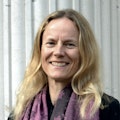Overview
For most of human evolution, humans lived in close proximity with nature and the start of mass urbanisation happened relatively recent on an evolutionary scale. For this reason, the biophilia hypothesis (Wilson, 1984) proposes that humans feel best when they are exposed to nature – their natural habitat. To support this hypothesis, it could for example be shown that being in nature or even just adding plants to rooms, decreases speech anxiety (Buttelmann & Römpke, 2014) and that from a young age, children prefer to interact with live animals as opposed to toys (LoBue et al., 2013). However, direct contact to nature has been steadily decreasing, particular in children from disadvantaged communities, who often don’t have the means to access more natural environments.
For this reason, the Wildfowl and Wetlands Trust has designed the Generation Wild programme to connect children from disadvantaged communities to nature. The purpose of this PhD project is to evaluate this programme and investigate how the children benefit from it. A mixed-method approach will be employed for this evaluation covering both qualitative and quantitative measures consisting of a variety of different approaches, such as participatory methods, behavioural studies and observation.
- Undergraduate Education
2019: B.Sc. Psychology, Free University Berlin
- Postgraduate Education
2022: M.Sc. Early Childhood Research, Leipzig University
- Employment
2019: Student assistant in the Methods and Evaluation/Quality Assurance department, Free University Berlin
2019-2022: Research assistant in the project LeipzigLab “Children and Nature”, Leipzig University
Research
Research interests
My particular research interest lies in finding methods to promote a sustainable relationship between humans and nature all around the world. With a background in developmental psychology, I’m particularly interested in investigating how children form a relationship to their natural environment and how this relationship is influenced by the cultural and societal norms of the community they live in.
Furthermore, I’m interested in exploring, evaluating and validating methods used in developmental and cross-cultural research, as well as the ethics, challenges and responsibilities of conducting research in a comparative or cross-cultural context as well as with participants from vulnerable groups, such as children.
I prefer conducting research in interdisciplinary teams with participant-centred mixed-method approaches, as I believe the complexity of human thinking and behaviour is best explored from a variety of perspectives.
Thesis
How does engaging with nature impact on the health and well-being of children from disadvantaged communities?
Funding source
ESRC Wales DTP


